Kevin DeYoung's Blog, page 89
December 21, 2013
Staff Book Recommendations for Christmas
We have a tremendous staff at URC. They like reading almost as much as I do. So I asked them to suggest some books people might want to consider for Christmas reading or Christmas gifts. I told them to pick whatever they like–Christian, non-Christian, fiction, young adult, whatever. Here are the responses I received.
Nick Setterington, Director of International Ministries
Christmas is a great time to break from my usual reading diet (which tends to be theology), so I’m aiming outside this genre to books I’ve found fun, fast-moving, or riveting while at the same time being historical, mind-stirring, or biographical. Along those lines, here are a few books worth considering, each of which could be read in a day or two.
Blain Harden, Escape from Camp 14: One Man’s Remarkable Odyssey from North Korea to Freedom in the West (Penguin)
The author writes, “North Korea’s labor camps have now existed twice as long as the Soviet Gulag and about twelve times longer than the Nazi concentration camps” (p4). What would it be like to grow up in a labor camp with no knowledge of the outside world? This account should make us weep while giving us a greater urgency to pray for the North Korean people.
Adam Makos, A Higher Call: An Incredible True Story of Combat and Chivalry in the War-Torn Skies of World War II (Berkley)
I am amazed what our grandparent’s generation experienced during the horrors of WWII. Reading about chivalry, courage and honor—not merely from Allied pilots but from German fighters as well—makes you pause to consider the presence of virtue in the midst of unspeakable evil.
James Doolittle, I Could Never Be So Lucky Again: An Autobiography (Bantam)
The life of General James Doolittle is remarkable because he actually lived to write about it. From his early days as a stunt pilot with experimental aviation technology to his invading flight over Tokyo during WWII to the jet and space era after the war, this autobiography gives you a personal account of one of the greatest, most technologically evolved generations in American history.
N. D. Wilson, Notes From The Tilt-A-Whirl: Wide-Eyed Wonder in God’s Spoken World (Thomas Nelson)
I don’t have a poetic or artistic mind, so it’s fascinating to climb inside one’s head to see what goes on in there. This book will do just that. It helped me to think about my daily routine with new wonder and to see the world with different eyes.
Rachel Schultz, Volunteer Coordinator
Katie Quinn Davies, What Katie Ate (Studio)
This recommendation comes from one who finds flesh and blood (um, spine and pages?) cookbooks needless in a world of blogs and Pinterest. And yet, I am compelled to suggest it to you. Katie Quinn Davie’s photography and food styling is second to none, making this book equally function and art. It will be at home in a kitchen cupboard or displayed on your coffee table.
Rose Marie Miller, From Fear to Freedom (Shaw)
Rose’s writing has brought tremendous growth and healing to my soul. From Fear to Freedom centers around our need to understand God’s love for us is based only on Christ. Although much of the book is about her life, I appreciate Rose’s care to make the focus God-exalting rather herself or her experiences-exalting. This is easily in my top five of all time favorites.
Jenny Olson, Administrative Assistant to Kevin DeYoung
Veronica Roth, Divergent (Katherine Tegen)
Let me explain–I have an adult daughter that is very involved with the Young Adult fiction publishing world and I get most of my book recommendations from her. Divergent is from the now-ever-popular dystopia genre but I found it to be quite gripping and enjoyable. It is the first in a trilogy (don’t all YA books come in a series!). I can’t recommend the second and third books as much as the first. My daughter tells me the first books are always superior.
Timothy Keller, Walking with God through Pain and Suffering (Dutton)
One of my favorite authors, Tim Keller, puts suffering in perspective. This is a good, readable book that I will be recommending to others.
Andrew Chesebro, Campus Ministry
John Piper, Desiring God (Multnomah)
I remember reading this book after my freshman year in college and having my world turned upside down. A God who loves himself more than me is the only possible God who can secure my eternal joy.
Mark Dever, The Gospel and Personal Evangelism (Crossway)
College was the first time I was ever challenged to share my faith, and quickly realized I didn’t know how! This short book is clear, insightful, and immensely practical.
Jon Saunders, Campus Ministry Director
John Piper, Desiring God , The Pleasures of God and Future Grace (Multnomah)
These 3 foundational books were immensely helpful to me when I was in college. They are modern day classics that I believe will stand the test of time.
Horatius Bonar, The Everlasting Righteousness (Create Space)
A classic that has already stood the test of time. This is a go to book that I use with college students on a regular basis. It is the perfect combination of theological precision and heart stirring devotion. I wish more people were aware of this hidden treasure.
Seth Davis, When March Went Mad (St. Martin’s Griffin)
This is the story of the most influential basketball game in history. It is the story of Michigan State vs Indiana State, which began the rivalry/friendship of Magic vs Bird. This is my one shot to hype Michigan State so I had to include this book.
Jason Helopoulos, Assistant Pastor
Jonathan Edwards, The End for Which God Created the World (Nabu)
This work is not the lightest reading, but it is well worth your time. This book literally changed my life (John Piper relays the same). It sets before the reader a true working theology for all of life and puts all things in a right perspective.
Paul Tripp, Instruments in the Redeemer’s Hands (P&R)
I have used this book to train multiple congregations and small groups in how to minister to one another. It is easy to say, “minister to one another.” Many understand the charge, but struggle with the “how.” Tripp’s rubric of “love, know, speak, do” is encouraging, practical, simple, and exceedingly helpful.
David Hinkley, Children’s Ministry Director
Fyodor Dostoevsky, Crime and Punishment (Dover Thrift)
An incredibly painful and relevant apologetic about the universality of moral absolutes.
J. C. Ryle, Holiness (Create Space)
This book connected the dots for me between justification and my desire to live for Christ better than anything else.
December 20, 2013
Something Better than Sovereignty
 When John Piper preached at our church two weeks ago, he talked about the very high view Muslims have of the sovereignty of God. They believe in a God who ordains whatsoever comes to pass. They believe in a God who knows the hairs on our heads. They believe in a God who can do as he pleases.
When John Piper preached at our church two weeks ago, he talked about the very high view Muslims have of the sovereignty of God. They believe in a God who ordains whatsoever comes to pass. They believe in a God who knows the hairs on our heads. They believe in a God who can do as he pleases.
So is there any difference between a sovereign Allah and the sovereign God of the Bible? Piper argued that in Islam the sovereignty of God operates independently of his other attributes, such that Allah can be capricious and arbitrary in his exercise of divine power. This is, no doubt, how some Christians see the Reformed view of God and why they reject it so strenuously.
But when Calvin and other early Reformed thinkers exulted in God’s design and decrees, they typically did so with a different word besides “sovereignty.” They much preferred to talk about providence. Obviously, the two are related. There is nothing wrong about celebrating divine sovereignty, so long as we understand that God’s inscrutable power is not exercised on a whim, but always as an expression of love for his people. His sovereignty is pro-us, which is why the Reformers talked about providence more than raw sovereignty.
Typically, the doctrine of providence has been placed alongside the doctrine of creation, the former being an extension of the same power and purpose we see in the latter. Calvin’s most “extreme” statements about divine sovereignty are stated in his chapters on the doctrine of providence (Institutes, Book 1, Chapters 16-18). Calvin thrilled in divine providence, not because it was some cold esoteric principle, let alone an example of God’s cruel caprice, but because it reminded Calvin that in all of life’s surprises and suffering that God has a “special care toward us.” Because God is powerful and because he is for us as his children, we can be grateful when things go well, patient when things go poorly, and enjoy “an incredible freedom from worry about the future.”
The Heidelberg Catechism picks up this same language in Lord’s Day 10 when it explains what we understand by the providence of God and how this knowledge helps us: “We can be patient when things go against us, thankful when things go well, and for the future we can have good confidence in our faithful God and Father that nothing will separate us from his love. All creatures are so completely in his hand that without his will they can neither ore nor be moved.” Likewise, the Belgic Confession teaches that this doctrine of providence “gives us unspeakable comfort since it teaches us that nothing can happen to us by chance but only be the arrangement of our heavenly Father” (Article 13).
Most of the readers of this blog love “Big God” theology. We love to sing and savor the sovereignty. And rightly so. But let us always remember–and make explicit before our children and our churches–that this big God is our God. More than that, through Christ, he is our heavenly Father. And by the firm and gentle hand of providence, our Father works all things no only for his glory, but also for our good.
December 18, 2013
What Must You Leave Behind?
 What must we leave behind if we are to follow Christ?
What must we leave behind if we are to follow Christ?
The simplest answer is that we must leave behind idolatry. That’s the very first commandment—you shall have no other gods before me. They don’t have to be obvious representations of the divine; they don’t have to be stone or wood or marble. There are all sorts of gods: education, athletics, marriage, choice, power, self-expression, beauty, achievement. Whatever you give your whole life for, there’s your idol.
If only I had ______ then I would be happy.
If only I had ______ I’d be worth something.
If only I had ______ I could truly live a fulfilled life.
Whatever you put in the blank, that’s your god. That’s what you are living for. That’s what you worship. Marriage may be in your blank, or your dream job, or better parents, or better kids, or fewer pounds, or more influence. Many of these are good desires, but they must not be ultimate. They are not meant to be gods.
What might a Jerusalem Council like the one in Acts 15 say to us? What might God be requiring us to give up as disciples of Christ? What might a Spirit-inspired council say to the hard-charging corporate guy who sees everything and everyone as a means for his advancement? What might it say to the woman obsessed with beauty and status, living from tabloid to tabloid, from gossip to gossip? What about the college student who lives for the party scene? Or the “good” college student, who thinks he has to get good grades and go to grad school?
This may all seem like normal life, but it is not normal Christian life. Remember, worldliness is whatever makes sin look normal and righteousness look strange.
Christians are not going to look like everyone else. They are not going to do what everybody else does. They will stand out. It’s hard to carry a cross without leaving some baggage behind.
December 17, 2013
Top Ten Books of 2013
This list is not meant to assess the thousands of Christian books published each year, let alone every interesting book published in 2013. I read a lot of books, but there are plenty of worthy titles that I never touch (and never hear of). This is simply a list of the books (Christian and non-Christian, but all non-fiction) that I thought were the best in the past year.
When I say “best” I have several questions in mind:
• Was this book well written and enjoyable to read?
• Did I find it personally challenging, illuminating, edifying, or entertaining?
• Is it a book I am likely to reread or consult often?
• Do I see myself frequently recommending this book to others?
The books that score well in all categories are “best” and make their way on Top Ten lists. This year’s list–probably because of my doctoral studies–is heavy on history.
Honorable Mentions
John Frame, Systematic Theology (P&R)
Peter Lillback and Richard B. Gaffin Jr., Thy Word is Truth (P&R)
ESV Gospel Transformation Bible (Crossway)
Bradley J. Longfield, Presbyterians and American Culture: A History (WJK).
Top Ten
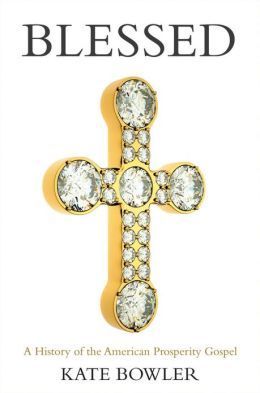 10. Kate Bowler, Blessed: A History of the American Prosperity Gospel (Oxford). As a version of Bowler’s Ph.D. thesis, this is a learned, yet readable, book with a pile of appendices and endnotes. The strength is not in Bowler’s theological evaluation (there is none), but in her dispassionate historical work connecting the major themes and figures in one of America’s most significant (and unfortunate) homegrown religious movements.
10. Kate Bowler, Blessed: A History of the American Prosperity Gospel (Oxford). As a version of Bowler’s Ph.D. thesis, this is a learned, yet readable, book with a pile of appendices and endnotes. The strength is not in Bowler’s theological evaluation (there is none), but in her dispassionate historical work connecting the major themes and figures in one of America’s most significant (and unfortunate) homegrown religious movements.
[image error]
9. Thomas Fleming, A Disease in the Public Mind: A New Understanding of Why We Fought the Civil War (De Capo). In this fascinating book, Thomas Fleming, a well respected historian and author of more than fifty books, argues that the Civil War was fought because of “a disease in the public mind” (a phrase used by President James Buchanan in 1859). The “disease” refers broadly to the tendency toward extremism and implacable winner-take-all attitudes on both sides of the Mason-Dixon Line.
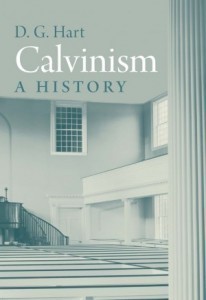 8. D.G. Hart, Calvinism: A History (Yale). Although I disagree with the way Hart often pits confessionalism against pietism and the awakenings, he is a first class historian with an ear for readable prose. This is a significant work that can serve well as an introductory textbook, while also filling in some historical gaps for even the most learned Calvinists. Just don’t expect to find much about Reformed Baptists.
8. D.G. Hart, Calvinism: A History (Yale). Although I disagree with the way Hart often pits confessionalism against pietism and the awakenings, he is a first class historian with an ear for readable prose. This is a significant work that can serve well as an introductory textbook, while also filling in some historical gaps for even the most learned Calvinists. Just don’t expect to find much about Reformed Baptists.
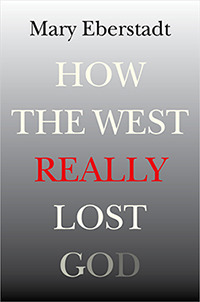 7. Mary Eberstadt, How the West Really Lost God (Templeton). Eberstadt makes a compelling case that the decline of the family has not only paralleled the decline of Christianity in the West, but that it has also been a contributing factor. Her thesis (despite a few egregious swipes at the Reformation along the way) is provocative, timely, and, at least to my amateur ears, convincing.
7. Mary Eberstadt, How the West Really Lost God (Templeton). Eberstadt makes a compelling case that the decline of the family has not only paralleled the decline of Christianity in the West, but that it has also been a contributing factor. Her thesis (despite a few egregious swipes at the Reformation along the way) is provocative, timely, and, at least to my amateur ears, convincing.
 6. David Gibson and Jonathan Gibson, eds., From Heaven He Came and Sought Her: Definitive Atonement in Historical, Biblical, Theological, and Pastoral Perspective (Crossway). A massive work that manages to be both erudite and irenic. Along with Owen’s The Death of Death in the Death of Christ, everyone who wishes to defend, doubts or despise definitive atonement will have to deal with this sturdy volume. People will be consulting this book for many years.
6. David Gibson and Jonathan Gibson, eds., From Heaven He Came and Sought Her: Definitive Atonement in Historical, Biblical, Theological, and Pastoral Perspective (Crossway). A massive work that manages to be both erudite and irenic. Along with Owen’s The Death of Death in the Death of Christ, everyone who wishes to defend, doubts or despise definitive atonement will have to deal with this sturdy volume. People will be consulting this book for many years.
 5. Matthew C. Mitchell, Resisting Gossip: Winning the War of the Wagging Tongue (CLC). It’s hard to believe there isn’t already a book like this, but if there is I haven’t seen it. In the age of social media could there be a more besetting sin for the church than gossip? Every Christian needs to wrestle with the Scripture verses expounded in this book; everyone will be helped by Mitchell’s gentle, firm, and wise words.
5. Matthew C. Mitchell, Resisting Gossip: Winning the War of the Wagging Tongue (CLC). It’s hard to believe there isn’t already a book like this, but if there is I haven’t seen it. In the age of social media could there be a more besetting sin for the church than gossip? Every Christian needs to wrestle with the Scripture verses expounded in this book; everyone will be helped by Mitchell’s gentle, firm, and wise words.
 4. Mark Jones, Antinomianism: Reformed Theology’s Unwelcomed Guest? (P&R). Don’t let the small size fool you, this is a legitimate scholarly work. In fact, my only beef is that I wish the rich feast in these pages were put on a lower shelf. Nevertheless, Jones has done us a tremendous favor by digging through the historical record and making a compelling case that antinomianism has frequently bedeviled the Reformed community and that it continues to mislead many Christians today.
4. Mark Jones, Antinomianism: Reformed Theology’s Unwelcomed Guest? (P&R). Don’t let the small size fool you, this is a legitimate scholarly work. In fact, my only beef is that I wish the rich feast in these pages were put on a lower shelf. Nevertheless, Jones has done us a tremendous favor by digging through the historical record and making a compelling case that antinomianism has frequently bedeviled the Reformed community and that it continues to mislead many Christians today.
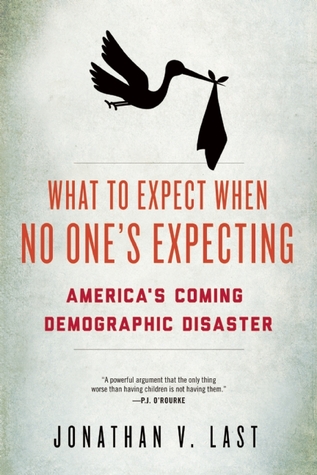
3. Jonathan V. Last, What to Expect When No One’s Expecting: America’s Coming Demographic Disaster (Encounter). In this brisk and intelligent book, Last details the falling birthrate in America (and in the world) and explains why Very Bad Things inevitably follow population decline. Importantly, Last concludes that if there is hope for avoiding the Very Bad Things the book outlines it will be found in the children of religious families. The basic reason countries stop having children is because they’ve come to see offspring as a liability rather than a source of hope.
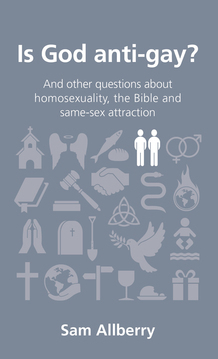 2. Sam Allberry, Is God Anti-Gay? (The Good Book Company). Allberry, a pastor in the UK who himself struggles with same-sex attraction, has written the perfect book to hand to skeptics and wobbly believers. The tone is irenic, the content firm, and the length manageable (less than 100 pages). Buy several copies and be prepared to give them away.
2. Sam Allberry, Is God Anti-Gay? (The Good Book Company). Allberry, a pastor in the UK who himself struggles with same-sex attraction, has written the perfect book to hand to skeptics and wobbly believers. The tone is irenic, the content firm, and the length manageable (less than 100 pages). Buy several copies and be prepared to give them away.
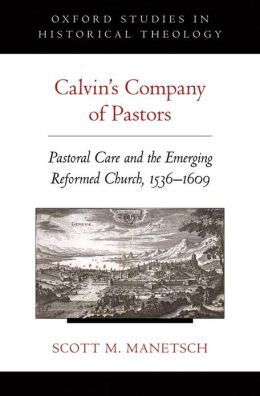 1. Scott Manetsch, Calvin’s Company of Pastors: Pastoral Care and the Emerging Reformed Church, 1536-1609 (Oxford). This is one of the finest examples I’ve come across of first class, well written scholarship which also serves the church. Calvin scholars, Reformation scholars, and social historians will not be able to ignore Manetsch’s excellent contribution to the field. At the same time, I can’t imagine pastors not being edified as they read about the Venerable Company’s hard work, pastoral faithfulness, endurance, and normal human failings.
1. Scott Manetsch, Calvin’s Company of Pastors: Pastoral Care and the Emerging Reformed Church, 1536-1609 (Oxford). This is one of the finest examples I’ve come across of first class, well written scholarship which also serves the church. Calvin scholars, Reformation scholars, and social historians will not be able to ignore Manetsch’s excellent contribution to the field. At the same time, I can’t imagine pastors not being edified as they read about the Venerable Company’s hard work, pastoral faithfulness, endurance, and normal human failings.
December 16, 2013
Monday Morning Humor
I’m not sure if this humorous, but it is certainly impressive. A 16 year-old, French speaking Canadian sings Elvis. Incroyable!
HT: 22 Words
For comparison, listen to the real Elvis or watch him live and you’ll see what an uncanny impersonation Mr. Thibault has perfected.
December 13, 2013
The Scandal of the Semi-Churched
[image error]This is one of those posts I’ve wanted to write for awhile, but I wasn’t sure how to say what I think needs to be said. The danger of legalism and false guilt is very real. But so is the danger of disobedience and self-deception.
I want to talk about church members who attend their home church with great irregularity. These aren’t unchurched folks, or de-churched, or under-churched. They are semi-churched. They show up some of the time, but not every week. They are on again/off again, in and out, here on Sunday and gone for two. That’s the scandal of the semi-churched. In fact, Thom Rainer argues that the number one reason for the decline in church attendance is that church members don’t go to church as often as they used to.
We’ve had Christmas and Easter Christians for probably as long as we’ve had Christmas and Easter. Some people will always be intermittent with their church attendance. I’m not talking about nominal Christians who wander into church once or twice a year. I’m talking about people who went through the trouble of joining a church, like their church, have no particular beef with the church, and still only darken its doors once or twice a month. If there are churches with membership rolls much larger than their average Sunday attendance, they have either under-shepherds derelict in their duties, members faithless in theirs, or both.
I know we are the church and don’t go to church (blah, blah, blah), but being persnickety about our language doesn’t change the exhortation of Hebrews 10:25. We should not neglect to meet together, as some are in the habit of doing. Gathering every Lord’s Day with our church family is one of the pillars of mature Christianity.
So ask yourself a few questions.
1. Have you established church going as an inviolable habit in your family? You know how you wake up in the morning and think “maybe I’ll go on a run today” or “maybe I’ll make french toast this morning”? That’s not what church attendance should be like. It shouldn’t be an “if the mood feels right” proposition. I will always be thankful that my parents treated church attendance (morning and evening) as an immovable pattern. It wasn’t up for discussion. It wasn’t based on extenuating circumstances. It was never a maybe. We went to church. That’s what we did. That made the decision every Sunday a simple one, because their was no real decision. Except for desperate illness, we were going to show up. Giving your family the same kind of habit is a gift they won’t appreciate now, but will usually thank you for later.
2. Do you plan ahead on Saturday so you can make church a priority on Sunday? We are all busy people, so it can be hard to get to church, especially with a house full of kids. We will never make the most of our Sundays unless we prepare for them on Saturday. That likely means finishing homework, getting to bed on time, and foregoing some football. If church is an afterthought, you won’t think of it until after it’s too late.
3. Do you order your travel plans so as to minimize being gone from your church on Sunday? I don’t want to be legalistic with this question. I’ve traveled on Sunday before (though I try to avoid it). I take vacation and study leave and miss 8 or 9 Sundays at URC per year. I understand we live in a mobile culture. I understand people want to visit their kids and grandkids on the weekend (and boy am I thankful when ours come and visit). Gone are the days when people would be in town 50-52 weeks a year. Travel is too easy. Our families are too dispersed. But listen, this doesn’t mean we can’t make a real effort to be around on Sunday. You might want to take Friday off to go visit the kids so you can be back on Saturday night. You might want to think twice about investing in a second home that will draw you away from your church a dozen weekends every year. You might want to re-evaluate your assumption that Friday evening through Sunday evening are yours to do whatever you want wherever you want. It’s almost impossible to grow in love for your church and minister effectively in your church if you are regularly not there.
4. Are you willing to make sacrifices to gather with God’s people for worship every Sunday? “But you don’t expect me to cancel my plans for Saturday night, do you? I can’t possibly rearrange my work schedule. This job requires me to work every Sunday–I’d have to get a new job if I wanted to be regular at church. Sundays are my day to rewind. I won’t get all the yard work done if I go to church every week. My kids won’t be able to play soccer if we don’t go to Sunday games. If my homework is going to be done by Sunday, I won’t be able to chill out Friday night and all day Saturday. Surely God wouldn’t want me to sacrifice too much just so I can show up at church!” Not exactly the way of the cross, is it?
5. Have you considered that you may not be a Christian? Who knows how many people God saves “as through fire” (1 Cor. 3:15). Does going to church every week make you a Christian? Absolutely not. Does missing church 35 Sundays a year make you a non-Christian? It does beg the question. God’s people love to be with God’s people. They love to sing praises. They love to feast at the Table. They love to be fed from the Scriptures. Infrequent church attendance–I mean not going anywhere at all–is a sign of immaturity at best and unbelief at worst. For whenever God calls people out of darkness he calls them into the church. If the Sunday worship service is the community of the redeemed, what does your weekly pattern suggest to God about where you truly belong?
December 12, 2013
A People Divided
 So many bad ideas and theology come into the church because some people find the message of the word of God rejected by some and as a result think this message should be changed. The thinking is—if people don’t like the message, we need to find a different one.
So many bad ideas and theology come into the church because some people find the message of the word of God rejected by some and as a result think this message should be changed. The thinking is—if people don’t like the message, we need to find a different one.
In Acts 14:1-7 you’ll see that the Gospel message preached by Paul and Barnabas caused division in Iconium. Paul and Barnabas should be considered a pretty good preaching team. They were so well taught in the Bible that they wrote some of it. And not only are Paul and Barnabas preaching, there are also miracles. God attends and bears witness to the word of his grace with signs and wonders. People are being healed. There are amazing things happening. And still some people hated it.
The prince of this world can blind the minds of unbelievers. God can harden their hearts too.
We need to understand this so we don’t make it one of our ministry non-negotiables–that we cannot upset anyone or ever be the source of controversy. We should not presume that the effect of our ministry will naturally be for everyone to hold hands and sing songs together.
The Holy Spirit had Luke record all of these examples in his gospel and the book of Acts so that we would not be surprised when the gospel causes division.
It’s not wrong that followers of Christ should desire to live quietly and at peace with all men, but this good must be always be in submission to the greater goods of love, truth, and faithfulness to the gospel.
December 11, 2013
What Do You Think of When You Think of the New Calvinism?
Quick: without giving the title of this post too much thought, how would you answer the question? What’s the first thought that comes to your head? The first impression that rises unbidden to the surface of your soul?
There are a number of legitimate dangers that need to be heeded when it comes to the New Calvinism. This could be, for some people, just another fad, just another chasing after the It Thang. The movement could crumble under the weight of self-importance. There is the danger of idolizing our heroes and envying our colleagues. There is the danger of minimizing important doctrines in an effort to promote gospel-centered unity. There is the danger of not being careful enough with our associations–and the opposite danger of taking glee in deciding who is in and who is out.
We have all the problems that any movement has. For starters, no one knows who “we” is. There is no established confession that binds us together, no official spokesperson, no adjudicating assembly. At many times, we still have to figure out how to disagree profitably among ourselves. Some of us need to grow up to be better churchmen and invest in formal denominations and institutions, not just informal networks. We need to be wary of pride. We need to be careful not to be too derivative in our thinking. We need to be anchored not in the passing fancy that is our social media world, but in the old Calvinism of the Reformation, and, more importantly, in the oldest “Calvinism” found in the Bible. We need to be sure our deepest and most sustained energies are poured into that one institution Christ promised to build and against which he promised the gates of hell could not stand.
In other words, almost every critique has some merit; almost every warning should be considered.
But this is what I think of when I think of the New Calvinism: gratitude. That’s my jump-out-of-the-box disposition. Not “yeah, but.” Not suspicion. Not a roll of the eyes. Gratitude. I am thankful to God for what he seems to be doing in our day–immensely thankful.
We had our Sola 13 conference over the weekend. To my great surprise, we had almost 3,000 people in attendance, two-thirds of whom were younger than me. Think about that. Here in Lansing, Michigan–the 109th largest MSA in the country–we have thousands of people gather, mostly young people, to hear 7 hour-long sermons on the solas of the Reformation. I met brothers and sisters from throughout the Midwest, a family from Brazil, and whole bunch of people from Canada (lots of people from Canada). I met Lutherans and Methodists who were happy to find something so meaty in their backyard. I met young people with stacks of old books. I had the privilege of looking out over a crowd of people who would hear from two (almost) lifelong Michiganders, a cancer survivor from Texas, an African-American pastor and former football player from Atlanta, a Korean-American scholar and pastor from Boston, and a preacher from Minneapolis who is old enough to be a parent of most of the attendees. And they sat through long, sometimes dense messages exulting in the grace alone, that comes through faith alone, in Christ alone, based on the Scriptures alone, to the glory of God alone. How can we not give thanks.
I was on a phone call last week with a number of brothers from the T4G and TGC circles. It was a relatively brief call, just for the purpose of catching up and for prayer. But in the course of the hour long conversation each man shared where he was seeing God at work. It was wonderful to hear of gospel advance in the Middle East, in Asia, in Brazil, in our seminaries, in the African American community, in our local communities, and in many other places and in many different ways.
Those of us who are young should learn from our fathers and mothers in the faith. I do not hear from them triumphalism, but neither do I hear cynicism or defeatism. I hear from them tremendous gratitude–gratitude for church plants and a growing burden for missions and a hunger for good theology and a rejection of gimmicks and passion for the supremacy of God in all things. The name doesn’t matter. Call it New Calvinism or Young, Restless, and Reformed, or the Reformed Resurgence or simply Big God Theology. No one I know is looking to trademark a tag or to defend everything and everyone that may be associated with a five-year-old label. The substance is the thing–at least on our best days.
It was a joy to spend the weekend with John Piper for a number of reasons. But let me mention two things that were particularly instructive. One was to see John marvel–repeatedly and wondrously–at what he has witnessed over the last decade or two in the church in North America and increasingly in the church around the world. Thousands of people gathering for expository preaching, Reformed theology, and books by dead guys is not the norm, even though it’s all some young Christians have ever known. I understand that the proof is in the churchly pudding, not in a big blast conference. Of course, blog and book and conference “success” means nothing without lasting faithfulness and fruitfulness in the local church. But this conference in particular was the fruit of many good things happening in local churches and these local churches and pastors celebrating each others’ faithful gospel ministry. From all that I see and the conversations I overhear, pastors and churches are where the best of the good things are happening. When I hear older men say they’ve never known a better time to teach at a seminary or to find church planters or to train men eager for expository preaching, I want to stand up and say “Thank you Lord.”
The second thing I saw was a constant stream of well wishers waiting in line to have their 30 second or 3 minutes with Piper. Did many of them take pictures? Sure. Did some want him to sign a book or a Bible? Yes. Were some of the people waiting in line because they are fan boys, John Piper is their homeboy, and they want to tweet their celebrity photo to all their friends? Perhaps. But after standing next to John for three days, here’s what actually happens over and over and over. People come up in tears just wanting to say thank you. People come up with hand written notes of how God has used his preaching so mightily. People wait around for a long time so they can tell John how a book changed their lives, a sermon saved their marriage, how they will never be the same after listening to his series on Romans. I don’t know if John Piper is a celebrity. I guess it depends on your definition. What I do know is that I saw nothing like teenage girls swooning over the Beatles, nothing like a rockstar or superstar athlete holding court with the adoring throngs. I saw a small man who preaches a big God stand patiently and smile tenderly as person after person thanked him for showing them more of God. It was an affection for the man borne out of the affection his ministry has kindled in them for the truth of the Bible and the glory of God.
We are all strugglers, all sufferers, and all sinners. When it comes to the human heart and human movements–and human churches and human denominations and human tradition and human confessions–there will always be room for warnings, corrections, and repentance. But when God is at work there will also be room for gratitude. And when I think of what God is doing in our day I want my first reaction to be a sense of his overwhelming grace.
December 10, 2013
Fuel for our Faithfulness
 The word of God does not return empty or void but it waters and returns accomplishing its purposes (Isaiah 55).
The word of God does not return empty or void but it waters and returns accomplishing its purposes (Isaiah 55).
We do not know when God’s purposes will be accomplished. We do not know if God’s purpose is to harden the heart or to soften it. But we ought to have absolute confidence that our work in the word is never in vain. No faithful sermon, no Bible study, no time of prayer in the word with your children, no memorizing of scripture, no ministry of the word is in vain.
Why should missionaries continue to labor in the hardest parts of the world with limited success or no success at all? Because they are confident that God has a people for himself from every tribe and language and tongue and nation, and so they stay.
Divine sovereignty—of the strong Reformed type—is one of God’s great motivators for missions. Paul says he endures all for the sake of the elect (2 Timothy 2:10). John Newton wrote a letter to Reverend Thomas Jones stating, “If I were not a Calvinist, I think I should have no more hope of success in preaching to men than in preaching to horses or cows.” Divine sovereignty should not make us lazy. It should make us long suffering.
One of the most common objections to the doctrine of election is that if it is true that God chooses who will be saved then there is not much point in working hard to get the gospel out. But this is human logic is just the opposite of biblical logic which says: if God has not chosen some to believe, then why bother speaking? Divine sovereignty in salvation is precisely the reason to keep on speaking—because God has chosen some; because God is sovereign; because God has elected; because some will believe. As Spurgeon noted, we don’t know who the elect are until they believe, so we better keep sharing the gospel, in hope and in confidence that those appointed for eternal life will believe (Acts 13:48).
God’s sovereignty is fuel for our faithfulness–not a deterrent to hard work and sacrifice, but the best motivation for it. As Luther said, reflecting on his labors for reformation: “I did nothing. The word did all the work.”



